 Thule Musik has been responsible for the fledgling releases of some of the rising stars of the Icelandic music scene. Múm's popularity has exploded over the past year and Trabant was recently profiled in the New York Times. Both these bands are represented on this double CD compilation (each with their remix of another artist's track, plus an original track remixed by someone else), but '42 More Things to do in Zero Gravity' attempts to showcase a wide variety of electronic artists. Some names might ring a bell to those who follow the musical goings-on of Reykjavik and beyond, and others seem to be surfacing for the first time.
Thule Musik has been responsible for the fledgling releases of some of the rising stars of the Icelandic music scene. Múm's popularity has exploded over the past year and Trabant was recently profiled in the New York Times. Both these bands are represented on this double CD compilation (each with their remix of another artist's track, plus an original track remixed by someone else), but '42 More Things to do in Zero Gravity' attempts to showcase a wide variety of electronic artists. Some names might ring a bell to those who follow the musical goings-on of Reykjavik and beyond, and others seem to be surfacing for the first time.Billing itself as "an Icelandic Ambient Compilation," Uni:form, in conjunction with Thule, definitely adopts a broad definition of "ambient." The vast majority of tracks on '42 More Things' are more structured than such aforementioned nomenclature might imply, but the general presence of electronic chill-out background soundscapes (somewhere in between Warp's 'Artificial Intelligence' compilations and the atmospheric side of the Morr Music roster) is right on the mark.
Ilo, Thor, Ruxpin, and Biogen will likely be familiar to the more seasoned aficionados of Icelandic music as a result of their remix work for both Múm and Sigur Rós. Ilo's track "Tif" is among the more striking of the contributions: a trip hop-infused tapestry of distorted voices, guitar, piano and seductive beats. The fluffy but listenable "Flying," the angelic and moody "First Contact," and the drum 'n' bass-inspired "Above Sea Level" are Ruxpin's three pieces. These tracks, while exhibiting an impressive range overall, individually don't seem really go anywhere. They do succeed, however, in melding well with the relaxed vibe of the compilation as a whole. Biogen's "Hi-Fi FM" is quirky and up-tempo, while "Afloat" sounds like a digital sea spray overlaid with glistening mellow synths. "I Don't Have a Clue" by Thor is perhaps the closest to being truly ambient with its beatless lilt, along with the Trabant's track "Superman," remixed here by Worm is Green. Other noteworthy contributions come from the lesser-known Krilli (represented here by two excellent songs, one of which beautifully recalls some of the instrumental work on David Bowie's 'Low'), Rhythm of Snow's Autechre-esque "Getting Closer to an Unknown Goal," and Múm's twitchy Kanada remix.
Overall, '42 More Things' doesn't have much that will completely bowl its listeners over with either profundity or innovation, but as a whole, it provides for extremely pleasant and meditative listening.
samples:
- Ilo - Tif
- Krilli - 52cd 4kg
- Biogen - Hifi FM
- Ruxpin - Above Sea Level
- Administrator
- Albums and Singles
 Here are past and present Crouton recordings centered around prolific, poly-pseudonymic, multi-faceted artists Chris Rosenau and Jon Mueller. Piano Bread is a (still available) numbered and cardboard boxed edition of 500 from 1999. It comes with a book with a surreal tale by drummer Mueller that seems to portray an individual's lustful, "piano bread"-addled search for self. Equally mystifying is the disc's 15 untitled tracks which may or may not correspond in some way to the book's 12 chapters. Ranging from one to nearly nine minutes, the pieces are performed by soloists, duets, trios or quartets that include four other players from the Milwaukee area. Musically it's very varied, running the gamut from a lone feminine voice, woodwind or treated harmonica to drums/samples/turntables/double bass band freakouts. To take the easy way out would be to describe much of what's going on here with words such as "avant", "improv" and "freeform" paired with another word that rhymes with "spazz". It's not really my cup of tea, but it would leave out the many other moments of greater interest to me, such as tracks five and 12. Here, Rosenau performs a magic trick with erratic acoustic guitar and banjo plucks and scrapes, sparse keyboard and bass notes, and clarinet chirps, wheezes and drones. On track six, John McCoy's "advanced sound manipulations" make for a murky melting pot of environments and atmospheres while on track seven, Jason Wietlispach drowns Rebecca Gray's ghostly wailing in heavily effected guitar swells. 'Piano Bread' is a bewildering 48 page and 68 minute journey with some intriguing sight seeing along the way.
Here are past and present Crouton recordings centered around prolific, poly-pseudonymic, multi-faceted artists Chris Rosenau and Jon Mueller. Piano Bread is a (still available) numbered and cardboard boxed edition of 500 from 1999. It comes with a book with a surreal tale by drummer Mueller that seems to portray an individual's lustful, "piano bread"-addled search for self. Equally mystifying is the disc's 15 untitled tracks which may or may not correspond in some way to the book's 12 chapters. Ranging from one to nearly nine minutes, the pieces are performed by soloists, duets, trios or quartets that include four other players from the Milwaukee area. Musically it's very varied, running the gamut from a lone feminine voice, woodwind or treated harmonica to drums/samples/turntables/double bass band freakouts. To take the easy way out would be to describe much of what's going on here with words such as "avant", "improv" and "freeform" paired with another word that rhymes with "spazz". It's not really my cup of tea, but it would leave out the many other moments of greater interest to me, such as tracks five and 12. Here, Rosenau performs a magic trick with erratic acoustic guitar and banjo plucks and scrapes, sparse keyboard and bass notes, and clarinet chirps, wheezes and drones. On track six, John McCoy's "advanced sound manipulations" make for a murky melting pot of environments and atmospheres while on track seven, Jason Wietlispach drowns Rebecca Gray's ghostly wailing in heavily effected guitar swells. 'Piano Bread' is a bewildering 48 page and 68 minute journey with some intriguing sight seeing along the way.
samples:
 Fast forward to 2002. Collections of Colonies of Bees is mostly the duo's doing and 'fa.ce (a' is their third album since '99. It is a continuous suite of eight (all but the last untitled) tracks that glide through played, processed and played to be processed sounds - often with elements from each track carrying over into the next.
Fast forward to 2002. Collections of Colonies of Bees is mostly the duo's doing and 'fa.ce (a' is their third album since '99. It is a continuous suite of eight (all but the last untitled) tracks that glide through played, processed and played to be processed sounds - often with elements from each track carrying over into the next.
Besides acoustic and electric guitars, lap steel, piano and steel drums, Rosenau is also credited throughout with "assembly," "manipulation," "miscellaneous noises," and/or the Akai Headrush. Mueller provides drums or percussion on five tracks and another Milwaukee musician, Don Mahlmeister, also adds guitars, Rhodes and Wurlitzer piano, keyboard and programming. That should give you an inkling of the palette and production. In a way, the first track sets a false tone with an upbeat, yet mild-mannered, almost folksy jam involving acoustic guitars, EBow, Rhodes, lap steel, bass and drums. The aftermath is track two, as the final notes slowly fade away and scraped metal and ambient drift supersede. Track three is undoubtedly one of the most beautiful pieces of music I've heard in years, if not ever. At the heart of it all is the guitars, their intermittent suggestions of melody and harmonics intertwined with near silence and tiny electronic currents. It's as delicate and pretty as a music box or Faberge egg. A barely audible background of steel drums and bird song begins track four as computer voiced "dooooo"s of varying length and gender pile up with portamento-wavered piano notes. For song five, melted down lap steel licks pick up where four left off and are coupled with somewhat bombastic drum fills. The 11-minute finale belies its curious title of "mu:rder" as the band invents a gorgeous, deep lull, which, up until the final few minutes, are cluttered with digital debris. Start to finish, 'fa.ce (a' is a very finely-calibrated work. It has an impeccable focus and flow, a well balanced mix between acoustic and electronic instrumentation, and a learned sense of time and space. Plain and simple, 'fa.ce (a' is poetry in motion. Look for it in my top ten of 2002 list.
samples:
Read More
- Administrator
- Albums and Singles
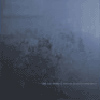 This already mightily praised release by Tex La Homa finally reaches these shores through the Superglider label. Tex La Homa is Matt Shaw with with help on a few tracks by Dave Purse, and the music is guitar driven with electronic and breakbeat flourishes.Superglider
This already mightily praised release by Tex La Homa finally reaches these shores through the Superglider label. Tex La Homa is Matt Shaw with with help on a few tracks by Dave Purse, and the music is guitar driven with electronic and breakbeat flourishes.Superglider
It's essentially electronic pop, with verse-chorus-verse arrangements and pop song subject matter. Pulsing basslines, laidback grooves, and tripping beats are augmented by electronic whirls, buzzes and beeps. Shaw's voice is low and sensual, desperately wanting all the way through the record. The trouble is that it's too static, too laidback, and too, well, formulaic. I can't place my finger on it any other way except to say it doesn't engage you. Tex La Homa strikes me as another band that looks good on paper, sounds okay on record, but can utterly convert you live. Every song has almost the same flavor, every vocal has almost the same treatment, every beat sounds fairly canned, and the subject matter is mostly loss or emptiness or the futility of love only to be let down again. Sadness overpowers it all, and that's part of what makes it so boring. It is well-produced with fine production values, but is just not all that interesting a listen. 'Dazzle Me' sounds like the desperate love letter to a lover who has not only left, but doesn't want anything to do with your life anymore, yet you still try ('and you know how I feel bout you/still you choose to do the things you do/should you have a change of heart/please don't keep me in the dark' is a perfect example). It's admirable, and by Goethe's "Three Questions," it is definitely worth doing. But does that mean I want to listen to it more than once? Nope.
 
samples:
 
 
Read More
- Administrator
- Albums and Singles
 G.M. Wallis is the main force behind the legendary Konstruktivists, a nearly forgotten and often overseen band of the diverse early 80's UK experimental scene. He released several sought-after LPs starting off in 1982, has been a part time member of Whitehouse (around the 'Great White Death' era), collaborated with CTI for the 'Hammer House' EP in 1984 (reissued on 'Collectiv One') and the 1985 album 'Glennascaul' was even produced by Chris Carter.
G.M. Wallis is the main force behind the legendary Konstruktivists, a nearly forgotten and often overseen band of the diverse early 80's UK experimental scene. He released several sought-after LPs starting off in 1982, has been a part time member of Whitehouse (around the 'Great White Death' era), collaborated with CTI for the 'Hammer House' EP in 1984 (reissued on 'Collectiv One') and the 1985 album 'Glennascaul' was even produced by Chris Carter.
Konstruktivists reappeared in the beginning of the 90s with a new line-up and techno approach which seemed a bit unfitting on World Serpent at the time. Following releases were spread amongst various small and independent labels all over the world. EE Tapes (once a tape, now a CDR label) from Belgium did a wonderful job on this one. Tasteful artwork accompanies this limited and hand-numbered collection of 14 unpublished and 'lost' tracks recorded between 1982-1999. With only one exception, the bass on "Neukon," G.M. Wallis is the sole artist creating pure electronic soundscapes with his synthesizers.
Half of the tracks are from 1983, a time when Konstruktivists released their probably best known album 'Psykho Genetica' on the long gone Third Mind label, and vary between some of his openly admitted influences: mid-period Kraftwerk, early Tangerine Dream, Neu! and Tuxedomoon ("Joeboy", "Desire" Pts. One & Two). He guides the listener through minimal and sometimes unexpectedly light-hearted synthetic pearls (like "Cologne") with the sovereignty of a man who not only knows his equipment well, but how to use it. Surprisingly only two newer tracks "Pinas R" (1994) and "Gas Mark" (1997) resemble what is commonly referred to as 'Old School Industrial' with distortions, feedback and a more aggressive attitude. The final and most current track, "Russia" is a beautiful outro: melancholy and nostalgia captured with just a few piano and string sounds. The sound quality sometimes lacks a bit of the high gloss finish of the current sounds, but this album works well as a reminder where electronic music took off and shows a substance which is timeless.
 
samples:
 
Read More
- Administrator
- Albums and Singles
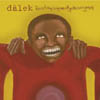 With the recent and often tongue-in-cheek assimilation of hip hop into the word of laptop electonica, it's about time someone with a Powerbook actually stepped up and rocked it. The trick with Dälek is that it's not the Powerbook that's on display, and Dälek isn't coming to hip-hop by way of smash-ups and mallrat b-boyism. Hip hop began as a uniquely urban expression, and as its reach has expanded into suburban territory in many ways, it has lost its connection to the grit, bustle, and sheer commotion of the city. 'From Filthy Tongue of Gods and Griots' brings the sound of the city back, and pays homage to hip hop's heritage by being embarrasingly honest. If DMX is is from the streets, then Dälek is unashamedly from the gutters. Beats and atmospheres sound dredged in dirt, and Dälek's straightforward delivery of lyrics about broken glass and third rails evokes startlingly real images of urban decay. Dälek fuses equal parts Public Enemy, My Bloody Valentine, and godspeed you black emperor! into a chaotic stew of squalor, anger, and sometimes hope that brings back the urgency of rap's early days. At the center of the album is a 12 minute epic of drones, feedback and noise that could be the end of a Mogwai meets Godflesh guitar noise session, but stays rooted to hip hop as Dälek flows over empty space to the rhythms ingrained in his head. Where The Veldt were shoegazers adding hip hop as an element to set them apart from their associates in the Cocteaus and the Jesus and Mary Chains of the world, Dälek are a hip hop trio who appropriate the expressive power of guitars, found sounds, and sheer noise to paint their urban murals. Make no mistake, this is not an IDM release, or an experimental noise album using hip hop flavor as a thematic mode—this is a hip hop record, and the one we've all been waiting for.
With the recent and often tongue-in-cheek assimilation of hip hop into the word of laptop electonica, it's about time someone with a Powerbook actually stepped up and rocked it. The trick with Dälek is that it's not the Powerbook that's on display, and Dälek isn't coming to hip-hop by way of smash-ups and mallrat b-boyism. Hip hop began as a uniquely urban expression, and as its reach has expanded into suburban territory in many ways, it has lost its connection to the grit, bustle, and sheer commotion of the city. 'From Filthy Tongue of Gods and Griots' brings the sound of the city back, and pays homage to hip hop's heritage by being embarrasingly honest. If DMX is is from the streets, then Dälek is unashamedly from the gutters. Beats and atmospheres sound dredged in dirt, and Dälek's straightforward delivery of lyrics about broken glass and third rails evokes startlingly real images of urban decay. Dälek fuses equal parts Public Enemy, My Bloody Valentine, and godspeed you black emperor! into a chaotic stew of squalor, anger, and sometimes hope that brings back the urgency of rap's early days. At the center of the album is a 12 minute epic of drones, feedback and noise that could be the end of a Mogwai meets Godflesh guitar noise session, but stays rooted to hip hop as Dälek flows over empty space to the rhythms ingrained in his head. Where The Veldt were shoegazers adding hip hop as an element to set them apart from their associates in the Cocteaus and the Jesus and Mary Chains of the world, Dälek are a hip hop trio who appropriate the expressive power of guitars, found sounds, and sheer noise to paint their urban murals. Make no mistake, this is not an IDM release, or an experimental noise album using hip hop flavor as a thematic mode—this is a hip hop record, and the one we've all been waiting for.
samples:
Read More
- Administrator
- Albums and Singles
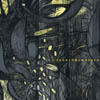 Forced to change their name from Atomsmasher, the vibrant trio of JamesPlotkin, Speedranch and David White barrel through nine multi-dementialsongs on their second full-length album together like a super-chargedlightning-intense hail storm, ready and willing to make dentseverywhere in its path. Fiesty and fiery, with guitars surprisinglybare of effects, the glitch-thrash sound is still considerably loud andabrasive as on the debut. This time around, however, there are a numberof more conjunct ideas and compositional themes. Plotkin's guitarmelodies, for example, carry through numerous sullen moments hammockedbetween inhuman sonic assaults. The electronically sliced-and-diceddrum solos and squelched vocals once again are never dull andpredictable nor artfully heady. Unfortunately, rock purists willundoubtedly find their sound too digital while laptop lovers will findit too rock, but if you can step away from the process and listen tothe product for a moment, it's damned enjoyable.
Forced to change their name from Atomsmasher, the vibrant trio of JamesPlotkin, Speedranch and David White barrel through nine multi-dementialsongs on their second full-length album together like a super-chargedlightning-intense hail storm, ready and willing to make dentseverywhere in its path. Fiesty and fiery, with guitars surprisinglybare of effects, the glitch-thrash sound is still considerably loud andabrasive as on the debut. This time around, however, there are a numberof more conjunct ideas and compositional themes. Plotkin's guitarmelodies, for example, carry through numerous sullen moments hammockedbetween inhuman sonic assaults. The electronically sliced-and-diceddrum solos and squelched vocals once again are never dull andpredictable nor artfully heady. Unfortunately, rock purists willundoubtedly find their sound too digital while laptop lovers will findit too rock, but if you can step away from the process and listen tothe product for a moment, it's damned enjoyable.
samples:
Read More
- Administrator
- Albums and Singles
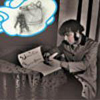 Both the Greek inventor Daedalus and this Southern Californian share similar fates: they came up with something great that went tragically awry. This debut Plug Research full-lengther opens with a strong prelude: a simple, yet elegant combination of samples and original melodies, swirled together in a serene lullaby.Plug Research
Both the Greek inventor Daedalus and this Southern Californian share similar fates: they came up with something great that went tragically awry. This debut Plug Research full-lengther opens with a strong prelude: a simple, yet elegant combination of samples and original melodies, swirled together in a serene lullaby.Plug Research
The choices Daedelus makes to integrate into his mix strays from the typical pack of obscure jazz and folk records, stumbling into big-band-era film theme music, with swinging drums on top of easy listening orchestral samples. Even toy xylophone gets filtered in on tunes like the stunning "Adventress." By the time of the narrated story of "Astroboy," the album's development becomes seemingly clear as a sample-strong children's record for the 21st century. But then it takes a confusing turn for the worse and becomes overtaken by hyperactive electronic beats and painfully dull melodies. Mediocre sax, flute and clarinet playing takes over and the serenity is almost completely lost. Despite the (de-)evolution, the music still sounds decent; however, I feel like a kid lost at the amusement park wanting simply to go home. He could have easily stopped at the elements of delicacy before jumping into musically unchallenging post-drum 'n' bass of songs like "Soulful of Child" or the intellectually insulting and sonically out-of-place rap on the disc's two closing tracks. Daedelus isn't the inventor yet, he's still a child, and a bright one indeed with loads of talent, but I'm sure once he decides what he wants to do when he grows up, the output will be marvellous.
 
samples:
 
Read More
- Bill Ryubin
- Albums and Singles
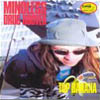 The debut release from Matt Hayden as Mindless Drug Hoover is a strangerelease from the more electronically-minded Deviant Records. Makingcomedy albums is a dangerous business, but Hayden's years of buskingmust have given him time to perfect these comic masterpieces. 'TopBanana' is a one-man-and-his-guitar affair, but the music is just thedelivery mechanism for his tales of smoking grass, being poor and evena love song (addressed to dried fruit on the glorious "Prune": "prune,oh prune/ you're a beautiful fruit, not just a laxative..").
The debut release from Matt Hayden as Mindless Drug Hoover is a strangerelease from the more electronically-minded Deviant Records. Makingcomedy albums is a dangerous business, but Hayden's years of buskingmust have given him time to perfect these comic masterpieces. 'TopBanana' is a one-man-and-his-guitar affair, but the music is just thedelivery mechanism for his tales of smoking grass, being poor and evena love song (addressed to dried fruit on the glorious "Prune": "prune,oh prune/ you're a beautiful fruit, not just a laxative.."). Despite the fact he recorded it all over one weekend (probably in the bathroom of some English pub), he's actually pretty crafty when it comes to making a catchy hum-along tune. You know what to expect with song titles like "Pancreas," "Fag stealer," and the subtle "Fuck off." With over 20 tracks in 40 minutes, the novelties never overstay their welcome. The tracks are cheap and shambolic— and genuinely hilarious. Also included is a jazzified remix of the "The Reefer Song," by The Orb.
samples:
Read More
- Administrator
- Albums and Singles
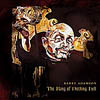 Who else but Barry Adamson to bring blaxploitation soundtracks into the 21st Century? As with the previous album, 1998's 'As above, So below', these songs are predominantly vocal based, albeit steeped in familiar film noir trappings. For in Mr. Adamson's Murky World, Cinema is King. His fictional frames are backed with a deftly orchestrated mixture of genres, including samples of badass brethren like Ike Turner, Cypress Hill and John Coltrane. Concerning the fiery, fun funk of opener "Cinematic Soul," Adamson proudly declares, "this is the stone groove I've been dying to rock with all my life." Indeed! Even his enthusiastic young son can't resist joining in 'cause, after all, "what is a song if you can't sing along?" "Whispering Streets" follows suit with more dramatic funkiness as Adamson unconvincingly pleads, "I don't even know how the gun got in my hand." In the dreamy, strings soaked '70s soul styling of "Black Amour," he becomes the slicker than Shaft character "Satisfaction Jackson." SJ confesses, "I want you, I need you, I love you," nicely enough, but then adamantly insists, "hold my freaky hand." "Twisted Smile" is low and slow, hazy and lazy as the, "everyone is everyone," line loops in epilogue. Of the three (essentially) instrumentals, "Le Matin Des Noire," (Archie Shepp) is my fave. For over ten minutes an organ-flecked vibes groove vamps into the background as the hustle and bustle of Parisian streets becomes the foreground. "That Fool Was Me" sees Adamson diversifying his discography even further as horns and harmonica add Dixieland dynamics. Sweetly singing, "something about you baby and they all agree," Adamson then admits "only a fool would leave you and that fool was me". For the climax of the duet finale, "Cold Comfort," an inquisitive refrain of, "sugar babe?" is overpowered by mighty drum rolls and orchestral curtain call. Damn. Damn! Just another highly cinematic masterpiece, no sweat. Barry Adamson, the coolest motherfucker on the planet? Probably. 'The King of Nothing Hill' my album of the year? Probably. Check barryadamson.com for forthcoming European tour dates and other goodies.
Who else but Barry Adamson to bring blaxploitation soundtracks into the 21st Century? As with the previous album, 1998's 'As above, So below', these songs are predominantly vocal based, albeit steeped in familiar film noir trappings. For in Mr. Adamson's Murky World, Cinema is King. His fictional frames are backed with a deftly orchestrated mixture of genres, including samples of badass brethren like Ike Turner, Cypress Hill and John Coltrane. Concerning the fiery, fun funk of opener "Cinematic Soul," Adamson proudly declares, "this is the stone groove I've been dying to rock with all my life." Indeed! Even his enthusiastic young son can't resist joining in 'cause, after all, "what is a song if you can't sing along?" "Whispering Streets" follows suit with more dramatic funkiness as Adamson unconvincingly pleads, "I don't even know how the gun got in my hand." In the dreamy, strings soaked '70s soul styling of "Black Amour," he becomes the slicker than Shaft character "Satisfaction Jackson." SJ confesses, "I want you, I need you, I love you," nicely enough, but then adamantly insists, "hold my freaky hand." "Twisted Smile" is low and slow, hazy and lazy as the, "everyone is everyone," line loops in epilogue. Of the three (essentially) instrumentals, "Le Matin Des Noire," (Archie Shepp) is my fave. For over ten minutes an organ-flecked vibes groove vamps into the background as the hustle and bustle of Parisian streets becomes the foreground. "That Fool Was Me" sees Adamson diversifying his discography even further as horns and harmonica add Dixieland dynamics. Sweetly singing, "something about you baby and they all agree," Adamson then admits "only a fool would leave you and that fool was me". For the climax of the duet finale, "Cold Comfort," an inquisitive refrain of, "sugar babe?" is overpowered by mighty drum rolls and orchestral curtain call. Damn. Damn! Just another highly cinematic masterpiece, no sweat. Barry Adamson, the coolest motherfucker on the planet? Probably. 'The King of Nothing Hill' my album of the year? Probably. Check barryadamson.com for forthcoming European tour dates and other goodies.
samples:
Read More
- Administrator
- Albums and Singles
It was inevitable that the children who grew up with Barney the Purple Dinosaur and Power Rangers would eventually start listening to music. This is the only explainable reason why flocks of kids love this group while a number of critics poo-poo them. I'm not saying these kids don't have taste, but maybe they just don't know that music like this has been done far better for years and years. Take the vocals of Frank Tovey and Richard Butler, add a dash of Ride, mix well with the Smiths pretending to be any generic Factory label B-list band and hire any old 1980s producer who's not done much in a while (but will get the critics scatching their chins) and voila, a debut album is ready for a press campaign! While Gareth Jones's take on the group's recordings clearly sound miles ahead of their first EPs and mediocre live performances, even the most talented producer is completely unable to accommodate for atrocious vocals and downright painful lyrics. There are moments of reflection, like on the heavily reverb-effected "NYC" or the up-close and intimate "The New" but most of it is brainless jangly guitar-based minor key dance music like songs like "Obstacle 1" or Joy Division riff-ripoffs like "Roland." To their credit, the group does play well together, despite having numerous moments of one-note playing, but even they will eventually get bored of that.
samples:
Read More
- Bill Ryubin
- Albums and Singles
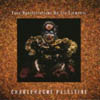 Some of Palestine's gorgeous drones are now transferred to CD and remastered by Lee Ranaldo and Thomas Koner for the Netherlands-based Barooni label. The two have done a great job too: the sound is crystal clear. This opens with 20 minutes of near static drones and tones in "Two-Fifths".
Some of Palestine's gorgeous drones are now transferred to CD and remastered by Lee Ranaldo and Thomas Koner for the Netherlands-based Barooni label. The two have done a great job too: the sound is crystal clear. This opens with 20 minutes of near static drones and tones in "Two-Fifths".
 
It's so stripped bare that for a while it seems like he's just made a steady electronic pulse, but after a few minutes of saturation, waves and other half-heard fragments start appearing. He uses the piano to create a similar saturation effect on the next two, "One+Two+Three Fifths" and "Sliding Fifths," which relentlessly pound out a mass of sound. His insane ability to play about four rhythms at once keeps the music from ever drifting into the background. After the 40+ minutes of superb piano punishing, the closing electronic drone of "Three Fifths" is a little too empty and sparse to hold my attention. Most of the music here is so stripped down that it's hardly there at all, but there's a lot of strange things going on under the surface.
 
samples:
 
Read More

